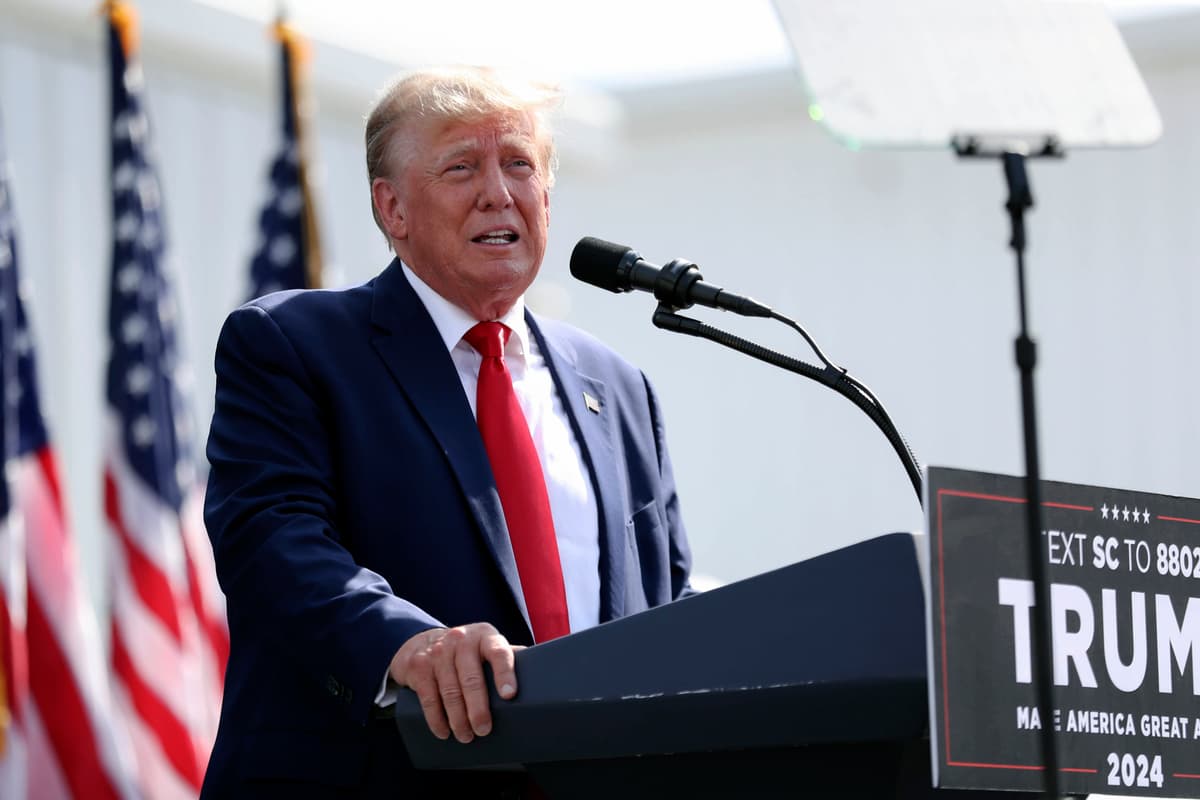A ‘KILL TRUMP’ Ruling, as Trump Himself Calls It, Could Be End of the Line for the Trump Organization
A former prosecutor tells the Sun that if corporations are people, Mr. Trump’s ‘just died.’

Judge Arthur Engoron’s finding that President Trump, two of his sons, and the organization he leads are liable for fraud is poised to unleash a financial earthquake that could yet rattle the presidential race. The harshly worded ruling could sound the death knell for one of New York’s signature businesses.
The trial court judge accuses Mr. Trump of inhabiting “a fantasy world, not the real world,” but the ruling’s ramifications could soon be real enough for the son of Queens who built a tower adorned with his name at the heart of Manhattan. The judge found that Mr. Trump’s valuations were arrived at via a “pie-in-the-sky dream of concocted potential,” all intended to secure tax benefits and financial gain.
The Sun spoke to a former federal prosecutor, Mitchell Epner, who is now a member of the Rottenberg Lipman Rich firm. He called the penalty “as severe as it gets,” at least in civil court, where the case at hand is being heard. He tried to explain the point by suggesting that if Mr. Trump’s corporate entities were imagined as people, “all of these people just died.”
At a hearing on Wednesday, one of Mr. Trump’s attorneys, Christopher Kise, asked the judge, “Is it the court’s position that those assets are now going to be sold or just going to be managed under the direction of the (receiver)?” The jurist replied that he was “not prepared to issue a ruling right now.”
Now, in any event, the 45th president’s “business certificates” have been revoked in New York, and an independent third party tasked with “managing the dissolution of the canceled LLCs.” To add insult to injury, Judge Engoron sanctioned a handful of Mr. Trump’s attorneys to the tune of $7,500 each for making “bogus” arguments that the court had already rejected. He called their behavior “indefensible.”
Mr. Epner explains that it is “typical in the New York real estate industry for there to be a fudge factor,” but the discrepancies Judge Engoron found “go far beyond a fudge factor.” As an example, Mr. Epner explains that it is “not kosher to say an apartment is three times what it is.” Ms. James alleged that Mr. Trump claimed his apartment’s square footage was 30,000 when it was actually 11,000.
The ruling cuts to the quick of a business empire that doubled as Mr. Trump’s brand. Atop Trump Tower is a triplex bedecked in gold whose inflated valuation appeared to seal the deal for Judge Engoron, who reasoned that “a discrepancy of this order of magnitude, by a real estate developer sizing up his own living space of decades, can only be considered fraud.”
Judge Engoron writes that in Mr. Trump’s “world: rent-regulated apartments are worth the same as unregulated apartments; restricted land is worth the same as unrestricted land; restrictions can evaporate into thin air; a disclaimer by one party casting responsibility on another party exonerates the other party’s lies.”
The finding comes just days before the civil suit brought by New York’s attorney general, Letitia James, is set to begin and means that one of the seven counts — the major one — is now settled in Ms. James’s favor, with only Mr. Trump’s liability to be sorted out. The attorney general has asked for $250 million in damages and the end of Mr. Trump’s ability to operate in New York
The heart of the ruling, though, is the determination that “any entity controlled or beneficially owned” by Mr. Trump, his sons Donald Jr. and Eric, the former Trump Organization chief financial officer Allen Weisselberg, and Trump Organization executive Jeffrey McConney must be canceled within ten days.
Ms. James has also asked for a $250 million fine to be levied on the Trump organization. That total will be hashed out at trial, to begin Monday, with the disposition of the six other counts that Mr. Trump faces.
Mr. Epner, the former prosecutor, impresses on the Sun that “this is enormous” because it involves forced liquidation of each of the companies named in the decision. This means the forced sale of every asset these entities possess. Mr. Epner explains that this sudden sale will be an “enormous tax event” for Mr. Trump and possibly limit his ability to buy back any assets he is forced to forfeit.
One of Mr. Trump’s primary defenses against the accusations of overvaluation were Statements of Financial Condition, which were attached to the valuations and hedged the estimation of their worth. In the deposition, the former president called it the “worthless clause,” meaning that any figure it offered was not to be taken literally or even seriously. It was, he said, a “good faith effort.”
Judge Engoron, though, found Mr. Trump’s behavior “without basis in fact or law,” notwithstanding the former president’s claims that “he could find a buyer in Saudi Arabia” willing to pay the sums he listed. In a footnote, the judge speculates that this could be the product “influence buying” more than “savvy investing.”
The alleged misrepresentations included overvaluing the Trump Tower apartment by between $114 million and $207 million dollars and appraising Mar-a-Lago between $426 million and $612 million when it is allegedly worth something like $20 million. That delta is ascribable to the manse being zoned as a social club, not a private residence.
Mr. Trump has vowed an immediate appeal and has already lodged the argument that some of Ms. James’s charges are precluded by New York’s statutes of limitation. In the meantime, Eric Trump took to Twitter to claim that “Mar-a-Lago is speculated to be worth well over a billion dollars.”
The former president took to Truth Social to characterize the ruling as a “crazy ‘KILL TRUMP’ decision.”

